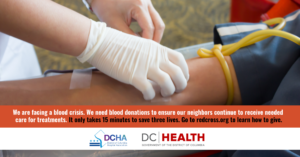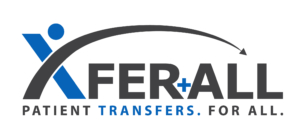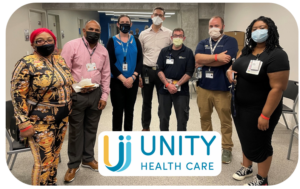On Tuesday, June 20th, the District of Columbia Hospital Association held its inaugural Patient Safety Summit, Back to Basics: Creating a Community Culture of Safety at the Milken Institute School of Public Health on the campus of The George Washington University. The event was an overwhelming success. With over 150 registrants and a robust and content rich agenda, attendees were provided the opportunity to collaborate, share best practices, and network, highlighting their continued commitment to providing safe and high quality patient care here in the District.
Auditorium
“The DCHA’s inaugural Patient Safety Summit was a spectacular success and I was extremely pleased to see so many healthcare leaders joining forces to focus on patient safety and learn from one another how best to do address this critical issue. This meeting laid the foundation for continued collaboration amongst the hospitals to improve healthcare in our great city. For me, one of the highlights of the summit was identifying and agreeing on the need for – and commitment to – data transparency. This transparency will mobilize us and help us reach our goal of making the District’s hospitals among the safest in the nation. As I look to the future, I eagerly welcome our new collaboration with the D.C. Health Department, we all share the same vision for the citizens of the District and are now on the road to turning that vision into reality.” Chip Davis, PhD, President & CEO, Sibley Memorial Hospital – Johns Hopkins Medicine; Chair, DCHA Board of Directors
During the program, DCHA presented Kathleen Chavanu Gorman, MSN, RN, FAAN, the Chief Operating Officer at Children’s National Health System, with the 2017 American Hospital Association Grassroots Advocacy Award for her dedication and commitment to the mission of hospitals on both the local and the national level.
Kathy Gorman Award Picture
Throughout the day, participants heard from national leaders, local officials, and hospital experts – including the majority of the District of Columbia hospital’s CEOs, who participated in a session entitled, “CEOs: Paving the Way for a Patient Safety Culture.” The session featured two panels that focused on the topics of Leadership and Collaboration.
Leadership Panel CEO Panel on Collaboration from left: Mark Chastang, CEO, Saint Elizabeths Hospital; Jim Linhares, CEO, BridgePoint Hospital Capitol Hill; Darcy Burthay, MSN, RN, President & CEO, Providence Health System – Ascension Health; Kurt Newman, MD, President & CEO, Children’s National Health System; Jim Diegel, CEO, Howard University Hospital
Leadership Panel CEO Panel on Leadership from left: John Rockwood, President, MedStar National Rehabilitation Hospital; Kimberly Russo, CEO, The George Washington University Hospital; Richard “Chip” David, PhD, Sibley Memorial Hospital – Johns Hopkins Medicine
“I was honored to serve on the CEO Leadership panel at DCHA’s first Patient Safety Summit which provided a valuable opportunity for healthcare leaders to collaborate on best practices in quality and safety,” said Kimberly Russo, Chief Executive Officer at The George Washington University Hospital. “Individuals across the DC region should have access to high-quality, safe healthcare no matter where they choose to receive it. By increasing transparency across organizations, we are able to work together to not only promote safety but ensure consistent, excellent medical care in the District of Columbia.”
A special thanks to those who presented at the Patient Safety Summit, including Dr. David Henderson of the National Institutes of Health Clinical Center who presented on “The Changing Landscape of Patient Safety,” Charisse Coulombe, MS, MBA, CPHQ of the Health Research and Educational Trust (HRET) at the American Hospital Association who spoke on “The Path Forward for Patient Safety,” and Dr. LaQuandra Nesbitt, MPH, the Director of the D.C. Department of Health, who spoke about, “The Intersection of Health Equity & Patient Safety and Quality.”
J. Bowens DCHA Patient Safety Summit
“While this event is just a first step in our collective quality journey, it was an impactful one. DCHA looks forward to continuing our work with our hospitals and their teams as we further our commitment to putting safe, high quality patient care first in the District of Columbia.” – Jacqueline D. Bowens, President & CEO, District of Columbia Hospital Association
The association already has plans underway for the next Patient Safety Summit, which they hope will take place in the early winter of 2018.
This live event was designated by The George Washington University School of Medicine and Health Sciences for a maximum of 5 AMA PRA Category 1 credits. Those who attended the event have received an e-mail from GWU with information on how to claim those credits.
DCHA would like to again express our gratitude for our Summit sponsors. With almost unanimous sponsorship support from our member hospitals, their contributions and support provided the means for such a successful event.
Patient Safety Summit Sponsors:
Children’s National
Больница Университета Джорджа Вашингтона

МедСтар Здоровье
Providence Hospital
Мемориальная больница Сибли
#Headlines
#Patient
#Safety
#Sibley
#Providence
#Summit
#Medstar
#Howard
#Childrens









